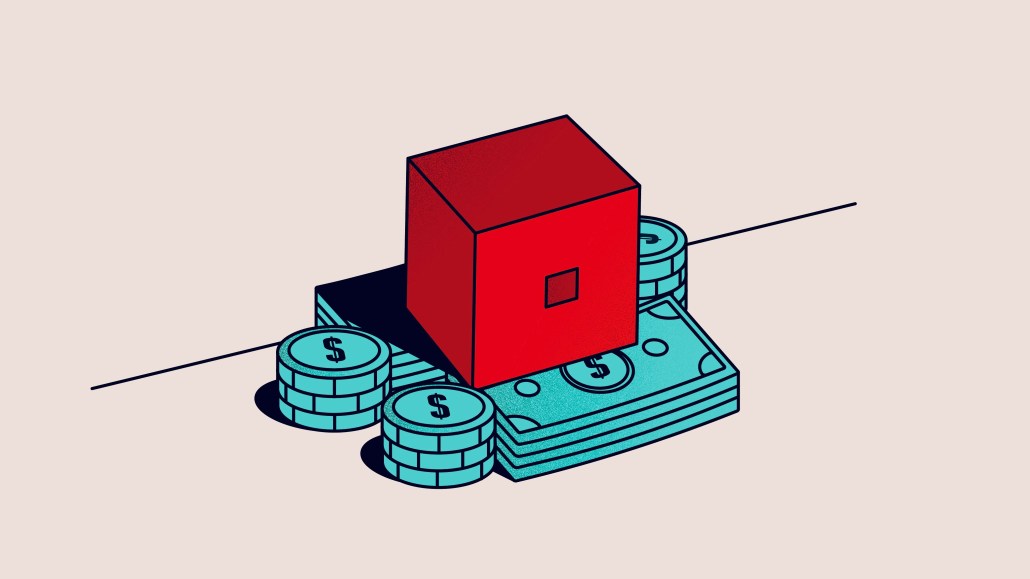Secure your place at the Digiday Media Buying Summit in Nashville, March 2-4
As a recession approaches, brands are investing in the metaverse — but still trying to figure out what it means

With a recession on the horizon, brands are not pulling back on their metaverse-marketing spending — but few of them seem to agree about what exactly it is.
“Most brands have no idea what’s going on at all,” said Lewis Smithingham, svp of innovation at Media.Monks. “Which is great — that’s what we’re here for.”
Over the past year, different parts of the tech industry have laid claims to the metaverse, most prominently the gaming industry, which believes that the metaverse will arise out of pre-existing virtual game worlds, and the Web3 sector, which argues that the metaverse must be built on top of blockchain infrastructure if it hopes to succeed.
Lately, the gaming sector appears to be winning this battle — as far as brand partnerships are concerned, at least. As NFT sales dry up, marketers have continued to pump money into gaming partnerships with both esports organizations and proto-metaverse platforms such as Roblox and Fortnite.
“A lot of it actually comes down to reach; if you’re hitting Roblox and Fortnite, you’re realistically hitting a fifth of living humans,” Smithingham said. “The demographics of people who are involved in NFTs, involved in crypto, is a much smaller swath.”
To some extent, this prioritization of the gaming side of the metaverse is a response to the coming recession.
“To put it in perspective, you saw how gaming and streaming just boomed during the pandemic, right?” said Ed LaBay, svp of merchandise and marketing for Hot Topic, which launched a fashion line in Roblox last week.
Whatever the reason, brands are increasingly using the language of the metaverse to describe their gaming partnerships. While marketers might call what they’re doing metaverse marketing, this growing form of brand activation is really just a particularly in-depth form of in-game advertising by a different name.
Brands’ growing appetite for the metaverse has been made evident by the rush of non-endemic brands into Fortnite and Roblox in recent months. Despite the potential risk of building virtual worlds without sufficient intellectual properties to populate them, brands such as Hot Topic, NASCAR and Invisalign have developed their own Roblox products and experiences over the past two weeks.
Representatives for all three companies told Digiday that they have no plans to slow down on their metaverse marketing spending despite economic headwinds.
“My bias is to persist with this experiment, because this is just so new for us, and we’ve got a lot to learn,” said Invisalign CMO Raj Pudipeddi. “As we learn, I’m sure it will create some experiences that are probably not as hard-hitting, not as relevant — so you’ve got to have a chance to change, modify and then get the benefit.”
Part of the learning process includes figuring out exactly what the metaverse entails. In their conversations with Digiday, both Pudipeddi and NASCAR svp and chief digital officer Tim Clark used the term “Web3” to describe their recent forays into the metaverse, despite the fact that their recent activations in Roblox had no inherent connection to blockchain technology. To Clark, this blurring of lines between the two sides of the metaverse sector is a logical move.
“The team that’s managing our gaming and esports partnerships and the folks that are managing Web3, that’s just one big group,” Clark said. “And I think they’re very capable of blurring the lines between the two, because we see a lot of similarities between those verticals.”
Perhaps most importantly to the brands looking to activate inside virtual space, the major tech companies and platforms building the metaverse show no signs of slowing down. The metaverse is nowhere near Ready Player One yet — but if or when it does get there, the brands that cut their teeth during these early stages of metaverse advertising will be primed to succeed.
“I don’t think it is wearing off,” said S4 Capital co-founder and chairman Sir Martin Sorrell when asked about metaverse hype during his Sept. 21 fireside chat at DMEXCO 2022, predicting that “the metaverse will account for $30-40 million” of his company’s revenue next year.
“We have to understand that we are in a place where all of culture and society is creating this huge shift,” Smithingham said. “And if you can get in on that and create long, multi-year strategies, you will be successful.”
More in Marketing

Future of Marketing Briefing: AI’s branding problem is why marketers keep it off the label
The reputational downside is clearer than the branding upside, which makes discretion the safer strategy.

While holdcos build ‘death stars of content,’ indie creative agencies take alternative routes
Indie agencies and the holding company sector were once bound together. The Super Bowl and WPP’s latest remodeling plans show they’re heading in different directions.

How Boll & Branch leverages AI for operational and creative tasks
Boll & Branch first and foremost uses AI to manage workflows across teams.








